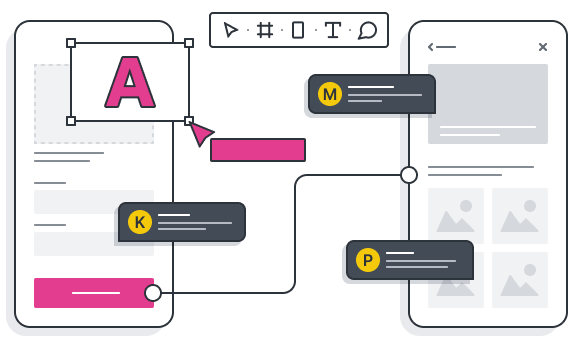Online learning is a flexible, affordable and enjoyable way to further your education or skillset.
There are lots of advantages to learning online: courses tend to be less expensive than traditional education; students have more autonomy over the pace of learning; courses can be completed alongside jobs and family commitments; and all from the comfort of home.
That said, it can also be a challenge. Outside the structure of a classroom it can be difficult to stay focused and to manage your time effectively.
To help you get to grips with learning online, we suggest the following:
Plan
Obvious perhaps, but creating a plan for your studies will help you stay on track. Research the structure of the course you’re taking.
- What modules are covered in the course?
- How many projects or exercises are involved?
- When and how will you be assessed?
- What does the recommended reading list look like?
- How long will you have access to the course materials?
Once you get to grips with the course requirements you’ll be better placed to work out your schedule. Consider how much time you can realistically dedicate to your course on a daily, weekly and monthly basis. Map out the key dates of the course; the submission dates for projects, the deadline for exams. Then, build your study plan around it.
Be sure to schedule regular breaks and don’t be afraid to chop and change your timetable in the first few weeks of starting your course. It can take a while to adapt to a new routine so don’t be too rigid in the early stages.
Minimise distractions
When you’re studying at home, it can be easy to get sidetracked. To help you sharpen your focus and study better, identify and remove unnecessary distractions. Turn off the tv, radio or anything that’s likely to break your concentration or pull focus from your course work. Where possible, turn your phone on airplane mode so you’re not picking it up every time you get a message. Close down social media and messaging apps on your computer and turn off your push notifications. Some students find setting alarms for specific tasks is a great way to punctuate your work and keep you focused.
Create a study space
It’s important to clearly divide your day between work, leisure and study time. A good way to do this is to allocate a different physical space to each activity. If possible, carve out an area for yourself at home that’s just dedicated to your studies. Preferably somewhere with natural light, a solid desk and a strong internet connection. You don’t need to have a home office to create a productive working environment.
Stay connected
Just because you’re studying at home doesn’t mean you’re studying alone. Your fellow students will be working through the same assignments as you, so it can be helpful to compare notes or offer one another feedback. There are a number of platforms and tools that help people stay connected remotely. Whether it’s a slack channel, LinkedIn group or video call, chatting with peers online can be a valuable and enjoyable way to build your network and share your experiences.
Reading blogs and magazines can be a really digestible way to learn more about a complex topic and stay up-to-date with trends in the industry. Following writers or senior leaders in your area of study also helps accelerate your learning as you’re getting an experienced perspective outside your course content.
Reward yourself
It can be hard to stay energised when you’re learning online, particularly if you’re fitting your studies around work or family commitments. Recognising your achievements and allowing yourself small rewards can help you maintain a level of enthusiasm for the work you’re doing. When you reach a milestone, celebrate it. Not only are you tracking your progress, you’re keeping yourself motivated.
Know your limits
If you’re feeling stressed or overwhelmed with your workload, don’t ignore it. Reach out to your classmates, teachers or mentors for support. Whether it’s seeking an extension on a project or more clarity on an exercise, it’s okay to ask for help.
On the day-to-day, making small adjustments can also help you feel less stressed. Try not to let your tasks build up and continue to attend webinars even if you feel you don’t have anything insightful to offer. For some people, making a list of tasks you’ve already completed, listening to a podcast or just getting outside for some fresh air can have a big impact on your wellbeing.






